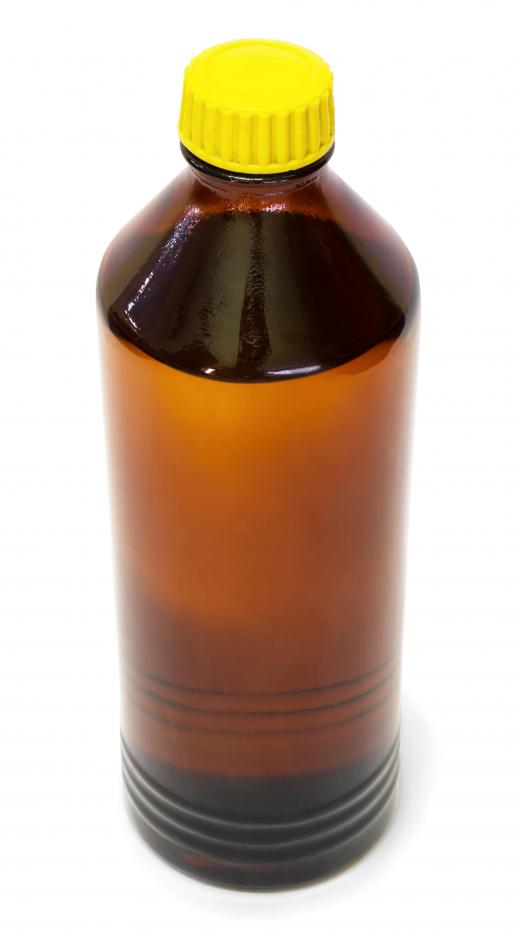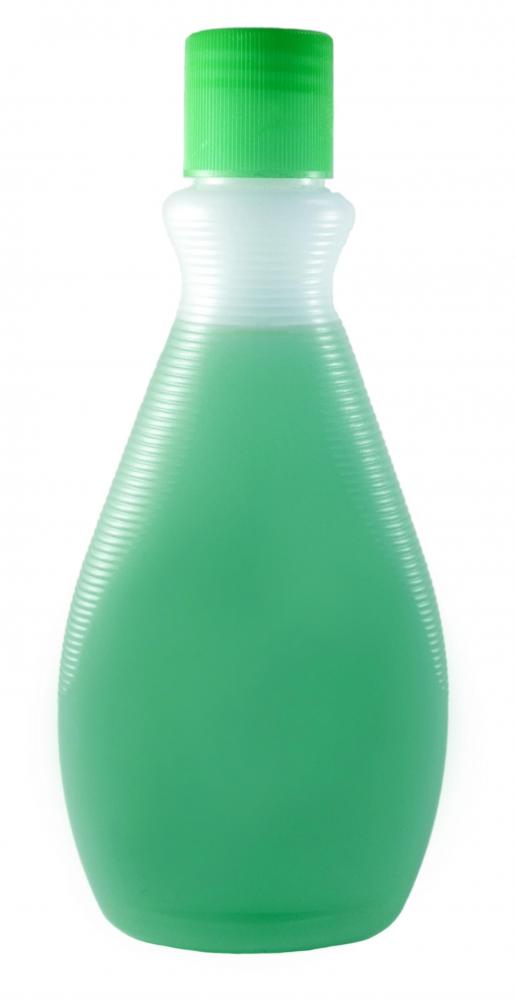Organic solvents are not like organic fruits or vegetables that require the stringent monitoring of pesticides or poisons. Rather, they are any solvent — or liquid that dissolves on its own or in some other substance — that contains carbon. The industrial uses for organic solvents are varied, including in a range of products from cleaning solutions to paint thinners, adhesives and insecticides. Organic solvents that are dangerous to the environment — solvents known as volatile organic compounds (VOCs) — are usually used under strict laws to ensure businesses do not overuse them, but the laws differ from region to region.
The cleaning industry, and industries whose processes result in the build-up of dirt or gunk, use organic solvents that dissolve this build-up to keep parts working or to help clean a house or other building. A few of the solvents used in the cleaning industry are acetone, n-hexane, tetrachloroethylene and perchloroethylene. The use of a solvent in the industry is obvious, because solvents are made either to dissolve materials or dissolve in materials, and cleaning plays to the natural function of a solvent.

In the adhesives industry, the organic solvents act as carrier fluids that help the solvent stay liquid until use. Common solvents in this industry are methyl ethyl ketone, trichloroethane and xylene. Without the use of these solvents, adhesives would dry out before they could be used.
Spray and liquid insecticides use solvents to carry the poison from a canister to the area infested with insects. Organic solvents in this industry are used to ensure the poisons remain as a solitary liquid and also help propel the insecticide from the canister. Organochlorine and organophosphate are both solvents used in this application.

The paint industry uses organic solvents for several applications. Paint thinners, which make it easier to work with thick paints, use toluene. Benzene is a popular solvent for use in paint removers. Creating the paint itself also requires the use of solvents, such as carbon disulfide, xylene and toluene.
While organic solvents are popular for a range of industrial uses, nearly all of these solvents are VOCs, meaning they are harmful to humans, animals, plants and the environment. This means most regions have laws stating the legal level of VOCs and, if a business does not meet this level, there are guidelines for proper reduction of volatile components. People working around VOCs and most other solvents are required to wear protective gear to limit their exposure to volatile solvents to ensure that their lungs, heart and other organs are not affected.
